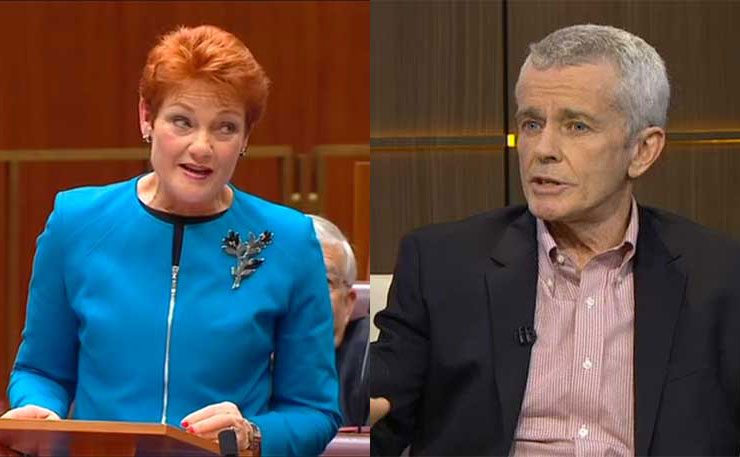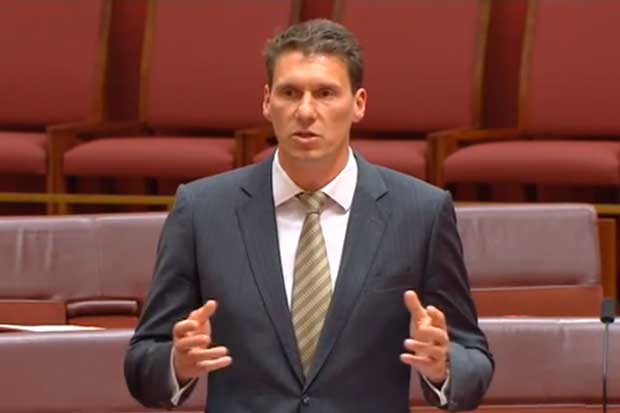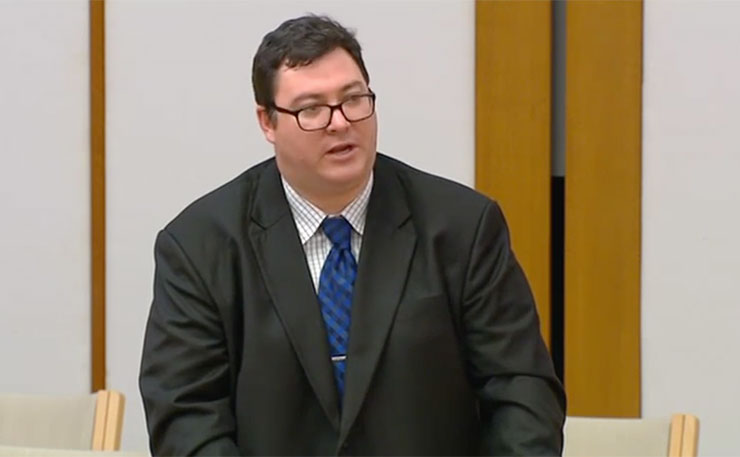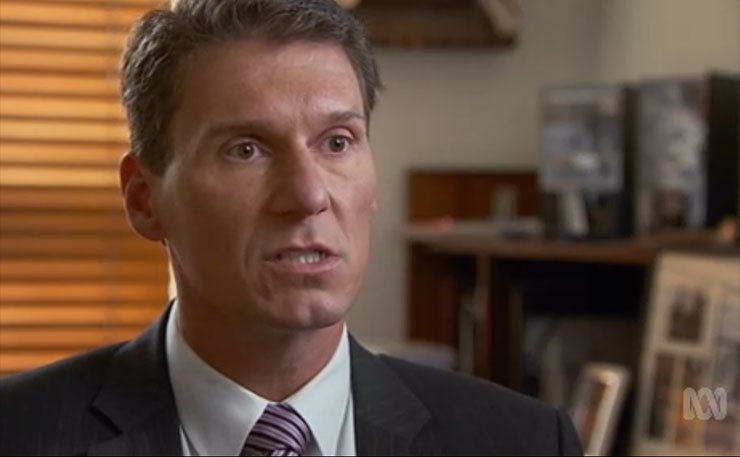Can Cory Bernardi create a viable conservative party in Australia? That’s the fascinating question raised by the long-awaited defection of the maverick South Australian Senator today, writes Ben Eltham.
One thing’s for sure: no-one is surprised. The departure of Cory Bernardi from the Liberal fold has been one of the worst-kept secrets in Australian politics.
The Senator has been complaining about the supposedly centrist tendencies of the Liberal Party for years. He also gave us a big hint after last year’s federal election, when he registered several domain names for possible websites, such as conservatives.org.au (last updated in December – we suspect something new will go up soon).
Bernardi finally made the call this week, informing Malcolm Turnbull and senior colleagues that he was leaving the famous ‘broad church’ of the Liberal Party, and striking out for the territories to found his own sect.
Senior Liberals begged him to stay. But the wishes of his former colleagues were ultimately no match for the burning ambition of a man who has always pursued politics in a highly individualistic manner. Now Bernardi has crossed the Rubicon, announcing his departure in the Senate today.
Can the new Australian Conservative party succeed? Only time will tell. But the weight of history and the cold logic of electoral politics suggests Bernardi will fail.
The key issue is whether there is a viable electoral coalition to the right of the Liberal Party. Despite the recent success of parties like One Nation and the Palmer United Party, that remains an open question.

History suggests Bernardi’s chances aren’t good. The last century of Australian democracy is littered with the wreckage of failed break-aways. Many parties split. Some splinter groups prosper. But few last. In the end, the two major parties have successfully defeated or reabsorbed the challengers.
There is no doubt that the times are suiting Bernardi. Populism is on the rise. Around the world, the values of liberalism are in retreat, as the spectacular events of 2016 in Britain and the US demonstrated. Politics seems ever more riven by questions of identity and culture, even while economic dilemmas such as inequality and working class unemployment linger. Bernardi argues, and some will agree, that the time is right for a genuine hard right party in Australia.
But we don’t know whether there is real support for a hard-line conservative party in Australia. If the disastrous downfall of Tony Abbott proved anything, it is that many Australians retain a residual faith in values such as fairness and equality. While many voters are socially conservative, they are also worried by wealth inequality and the rapidly vanishing Australian fair go.
In many respects, Bernardi represents the antithesis of the current populist moment. He is economically neo-liberal: a deregulatory hardliner who believes in free trade, unfettered capitalism and the upward redistribution of wealth. There is a yawning gulf between this position and the neo-protectionism of a Nick Xenophon or a Bob Katter – positions that have proven to be very popular in places like South Australia and regional Queensland.
Bernardi is also a hardline moral traditionalist: anti-gay marriage, enthusiastically Christian, and a bit of a wowser when it comes to having fun. Such positions have niche appeal, but Australia remains a largely secular society, whose national character remains preoccupied by decidedly quotidian values: the pursuit of leisure, a decent job, a home of one’s own.
Even if there is a big potential voter base on the right of politics, as Bernardi seems to believe, this territory is crowded and contested. One Nation, the Liberal Democrats, Family First, the Citizens Electoral Council, Katter’s Australia Party and the Shooters, Fishers and Farmers are all jockeying for position in this space.

In response, the modern Liberal Party has also drifted to the right – indeed, to its farthest right position on the electoral pendulum since the party was founded by Robert Menzies in 1945. On issues like climate change, welfare policy, same-sex marriage and border security, the party is even more conservative than it was under John Howard – even with the supposedly moderate Malcolm Turnbull in charge.
So there isn’t a lot of room on the right of the Liberal Party for a new Conservative party to move. If Bernardi is to succeed, he will need to win the majority of his supporters from disaffected Liberal voters.
Bernardi’s tilt has almost certainly been influenced by his recent sojourn in New York, where he watched the heady days of the Trump ascendency up close. The temptations to try his hand at right-wing populism are all too obvious.
But there are significant differences between Trump and Bernardi, and between the Republican Party and the Liberal Party. Politics in the US is highly regional and extremely polarised; many seats and states are essentially one-party bailiwicks in which the only real battles are for the Democrat and Republican primaries.
Australian politics is far more moderate and mainstream: compulsory voting and fairly-drawn electoral boundaries mean many seats are perpetually marginal. Bernardi’s appeal to the conservative rump of the electorate basically rules out any chances of winning a lower house seat, except perhaps in vulnerable regional seats currently held by the Nationals (but even here, One Nation seems a more likely challenger).

Moreover, Bernardi is not trying to take over the Liberal Party apparatus, as the Tea Party and then Trump succeeded in doing with the Republican machine. Trump went to the US election as the Republican nominee: the winner of their primaries, and by far the most popular Republican politician in the country. In contrast, Bernardi is doing the exact opposite: instead of capturing the main right-of-centre party machinery, he is walking out and starting his own show.
It’s significant that Bernardi has been unable to bring any of his fellow Liberals or Nationals along with him – not even self-proclaimed conservatives like George Christensen.
As a single Senator essentially representing himself, Bernardi joins fellow Senate crossbenchers like David Leyonhjelm, Derryn Hinch and Jacqui Lambie as solo operators in the upper house. He’s an experienced legislator and could have significant influence on government bills. But beyond that, he’ll need to cut deals and make alliances: activities for which he has so far showed little inclination.
Bernardi will make much of his rugged individualism. Conservatives often like to see themselves as lone rangers, astride a horse on the great plains of history. But the price of individualism is isolation.
Bernardi is about to find out just how lonely a party of one can be.
Donate To New Matilda
New Matilda is a small, independent media outlet. We survive through reader contributions, and never losing a lawsuit. If you got something from this article, giving something back helps us to continue speaking truth to power. Every little bit counts.





